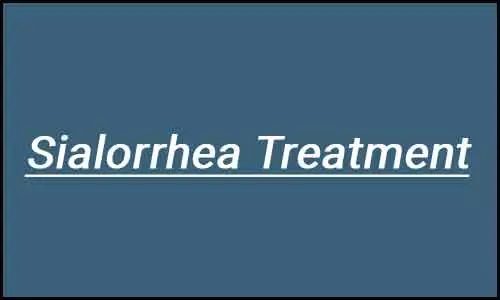- Home
- Medical news & Guidelines
- Anesthesiology
- Cardiology and CTVS
- Critical Care
- Dentistry
- Dermatology
- Diabetes and Endocrinology
- ENT
- Gastroenterology
- Medicine
- Nephrology
- Neurology
- Obstretics-Gynaecology
- Oncology
- Ophthalmology
- Orthopaedics
- Pediatrics-Neonatology
- Psychiatry
- Pulmonology
- Radiology
- Surgery
- Urology
- Laboratory Medicine
- Diet
- Nursing
- Paramedical
- Physiotherapy
- Health news
- Fact Check
- Bone Health Fact Check
- Brain Health Fact Check
- Cancer Related Fact Check
- Child Care Fact Check
- Dental and oral health fact check
- Diabetes and metabolic health fact check
- Diet and Nutrition Fact Check
- Eye and ENT Care Fact Check
- Fitness fact check
- Gut health fact check
- Heart health fact check
- Kidney health fact check
- Medical education fact check
- Men's health fact check
- Respiratory fact check
- Skin and hair care fact check
- Vaccine and Immunization fact check
- Women's health fact check
- AYUSH
- State News
- Andaman and Nicobar Islands
- Andhra Pradesh
- Arunachal Pradesh
- Assam
- Bihar
- Chandigarh
- Chattisgarh
- Dadra and Nagar Haveli
- Daman and Diu
- Delhi
- Goa
- Gujarat
- Haryana
- Himachal Pradesh
- Jammu & Kashmir
- Jharkhand
- Karnataka
- Kerala
- Ladakh
- Lakshadweep
- Madhya Pradesh
- Maharashtra
- Manipur
- Meghalaya
- Mizoram
- Nagaland
- Odisha
- Puducherry
- Punjab
- Rajasthan
- Sikkim
- Tamil Nadu
- Telangana
- Tripura
- Uttar Pradesh
- Uttrakhand
- West Bengal
- Medical Education
- Industry
RimabotulinumtoxinB safe, effective treatment option for sialorrhea, confirms study

Sialorrhea is a common disorder that is frequently seen in patients with Parkinson disease, amyotrophic lateral sclerosis, and cerebral palsy. Injection of rimabotulinumtoxinB into the salivary glands inhibits salivary production and was previously shown to be safe and well-tolerated.
The U.S. FDA had approved rimabotulinumtoxinB for treating sialorrhea.
The researchers conducted a randomized clinical trial to assess whether RimabotulinumtoxinB (RIMA) may be preferable as an anti-sialorrhea treatment compared with current oral anticholinergic drugs in people with neurological disorders.
Now, researchers report on phase 3, manufacturer-sponsored, randomized, parallel, double-blind, placebo-controlled trial to assess the safety, tolerability, and efficacy of rimabotulinumtoxinB (2500 and 3500 U) injections for the treatment of sialorrhea. Investigators enrolled 187 patients with sialorrhea: 147 were male, 122 had Parkinson disease, 13 had a prior stroke, 12 had amyotrophic lateral sclerosis, 6 had medication-induced sialorrhea, 4 had adult cerebral palsy, and 30 had sialorrhea caused by other conditions. Of the patients, 176 completed the study. Unlike placebo, both doses of the medication significantly reduced the unstimulated salivary flow rate from baseline to 4 weeks (−0.30 g/min with both doses vs. placebo). The onset of the effect was identified at 1 week. Adverse effects were common but mild and were primarily dry mouth, dysphagia, and dental caries.
The researchers concluded that treatment with RIMA (2500 U and 3500 U) in adults was well tolerated and reduced sialorrhea, with the onset of the effect at 1 week after the injection. These data support the clinical use of RIMA in the management of sialorrhea in adults.
The experts feel that RimabotulinumtoxinB significantly decreases this symptom with a single treatment session and therefore should be considered a good option to manage this condition and improve the quality of life of many patients.
For further reference log on to :
Isaacson SH et al. Safety and efficacy of rimabotulinumtoxinB for the treatment of sialorrhea in adults: DOI:10.1001/jamaneurol.2019.4565 JAMA Neurol
Dr Kamal Kant Kohli-MBBS, DTCD- a chest specialist with more than 30 years of practice and a flair for writing clinical articles, Dr Kamal Kant Kohli joined Medical Dialogues as a Chief Editor of Medical News. Besides writing articles, as an editor, he proofreads and verifies all the medical content published on Medical Dialogues including those coming from journals, studies,medical conferences,guidelines etc. Email: drkohli@medicaldialogues.in. Contact no. 011-43720751


